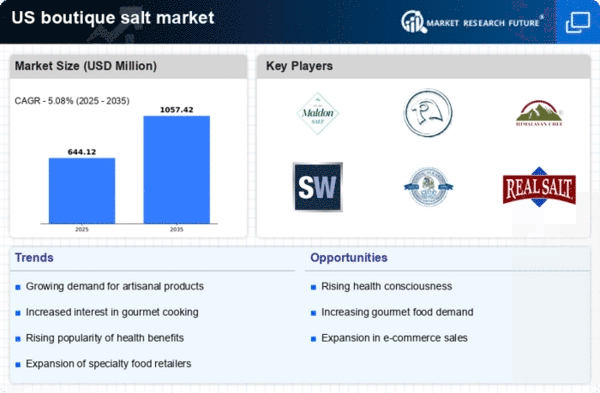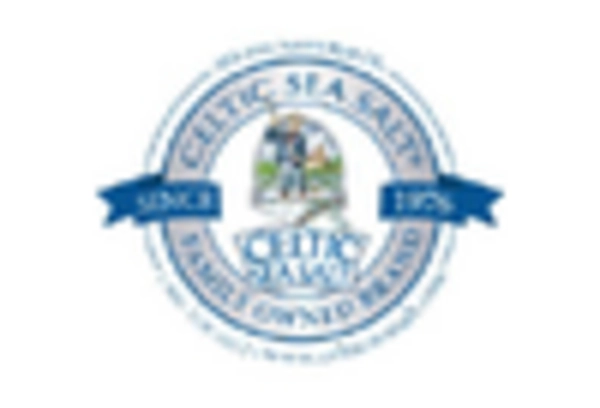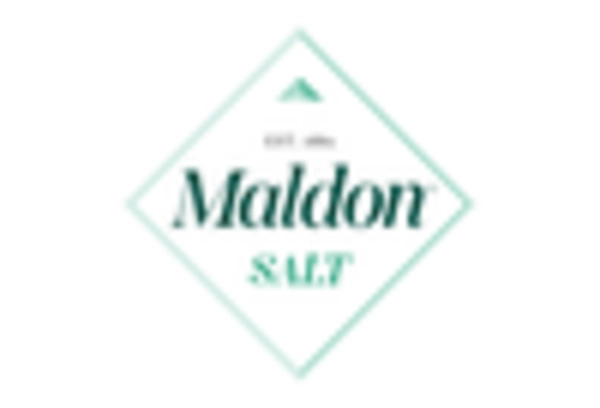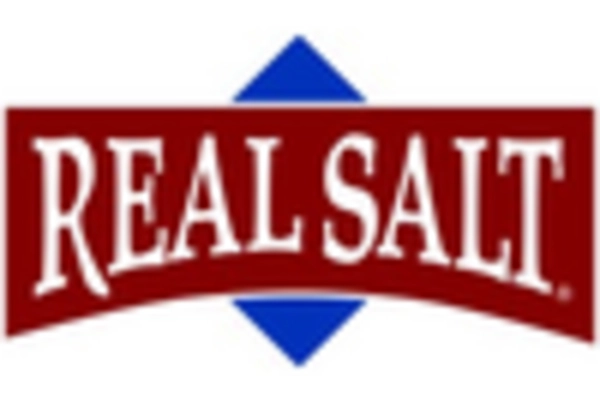E-commerce Expansion
The expansion of e-commerce platforms is playing a pivotal role in the growth of the boutique salt market. With the increasing preference for online shopping, consumers are now able to access a wider variety of boutique salts than ever before. This trend is particularly pronounced in the US, where online sales of specialty food products have surged. Data indicates that e-commerce sales in the boutique salt market have increased by over 15% in the past year alone. The convenience of online shopping, coupled with the ability to discover unique products from various regions, is attracting a broader customer base. As more consumers turn to online platforms for their culinary needs, the boutique salt market is likely to benefit from this shift, leading to enhanced visibility and sales opportunities for boutique salt producers.
Growing Culinary Interest
The rising culinary interest among consumers in the US appears to be a significant driver for the boutique salt market. As more individuals explore gourmet cooking and artisanal food products, the demand for unique and high-quality salts has surged. This trend is reflected in the increasing number of specialty food stores and online platforms offering a diverse range of boutique salts. According to recent data, the boutique salt market has experienced a growth rate of approximately 8% annually, driven by consumers seeking to enhance their culinary experiences. Chefs and home cooks alike are increasingly incorporating specialty salts into their dishes, which not only elevate flavors but also serve as a form of culinary expression. This growing interest in gourmet cooking is likely to continue fueling the boutique salt market's expansion in the coming years.
Culinary Tourism Influence
Culinary tourism is emerging as a significant influence on the boutique salt market. As travelers seek authentic food experiences, they are increasingly interested in local and specialty ingredients, including boutique salts. This trend is particularly relevant in regions known for their unique salt production, where visitors often seek to purchase local salts as souvenirs. The boutique salt market is benefiting from this influx of culinary tourists, as they contribute to increased sales and brand awareness. Data suggests that regions with a strong culinary tourism presence have seen a rise in boutique salt sales by approximately 10% in recent years. As culinary tourism continues to grow, it is likely to further enhance the visibility and demand for boutique salts, creating new opportunities for producers in the market.
Artisanal Production Methods
The appeal of artisanal production methods is becoming a notable driver in the boutique salt market. Consumers are increasingly drawn to products that are crafted using traditional techniques, which often emphasize quality and authenticity. This trend is evident in the rising popularity of hand-harvested sea salts and salts produced through sustainable practices. The boutique salt market is witnessing a growing segment of consumers who prioritize artisanal products, as they often perceive these salts to be superior in flavor and quality. As a result, producers who adopt artisanal methods are likely to see increased demand for their products. This shift towards valuing craftsmanship and authenticity is expected to continue influencing consumer preferences, thereby driving growth in the boutique salt market.
Increased Awareness of Mineral Benefits
Consumer awareness regarding the health benefits of various minerals found in boutique salts is emerging as a key driver in the boutique salt market. Many consumers are becoming more informed about the nutritional advantages of salts such as Himalayan pink salt and sea salt, which are believed to contain essential minerals like magnesium and potassium. This heightened awareness is influencing purchasing decisions, as consumers are increasingly opting for boutique salts over regular table salt. The boutique salt market is witnessing a shift, with sales of mineral-rich salts rising by approximately 12% in recent years. As health-conscious consumers seek alternatives to conventional salts, the demand for boutique salts that offer both flavor and health benefits is likely to grow, further propelling the market forward.
















